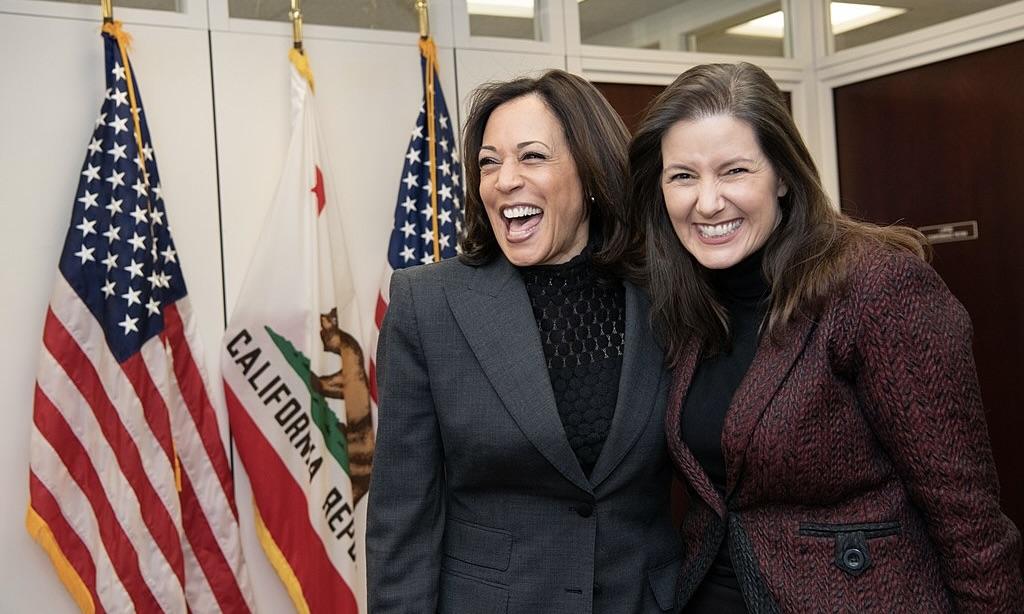Polling analyst Nate Silver has taken aim at Vice President Kamala Harris’ campaign team following their appearance on the Pod Save America podcast, criticizing them for lacking agency and accountability. His remarks have further fueled debates surrounding Harris’ 2024 election loss to President-elect Donald Trump and the strategy—or lack thereof—employed by her campaign.
Silver Criticizes Campaign Strategy
Silver, the founder of FiveThirtyEight, expressed his dissatisfaction with Harris’ campaign team on X, formerly known as Twitter, after the podcast aired. In his posts, Silver challenged the narrative presented by Harris’ campaign chair, Jen O’Malley Dillon, and senior adviser Stephanie Cutter, who argued that the vice president faced a media double standard compared to Trump.
During the podcast, O’Malley Dillon criticized Trump’s avoidance of traditional media interviews, while Cutter added that Harris received disproportionate backlash for a similar strategy. However, Silver pointed out that Harris did not conduct a solo network interview until late September, just weeks before Election Day.
“That was the campaign’s choice, not some conspiracy,” Silver wrote, dismissing the claims of unfair treatment. In a follow-up post, he lambasted the team, stating, “The Harris campaign folks are the most non-agentic people I’ve encountered in a position of comparable decision-making authority.”
Post-Election Reflections—or Lack Thereof
The Pod Save America interview was the first post-election analysis by Harris’ top campaign officials, including O’Malley Dillon, Cutter, campaign manager Quentin Fulks, and adviser David Plouffe. They discussed critical topics such as Harris’ reluctance to critique President Joe Biden publicly, internal debates over her potential appearance on The Joe Rogan Experience, and the Democratic Party’s challenges moving forward.
However, the interview drew criticism from both progressive and left-leaning commentators for failing to acknowledge strategic missteps. Writer Jeet Heer of The Nation questioned the team’s apparent lack of self-reflection, tweeting, “Is it too much to ask for a little humility and self-reflection from the people whose strategies failed badly?”
Similarly, Lindy Li, an adviser on the Democratic National Committee’s finance team, called the team’s post-election call with donors “self-congratulatory.” Speaking to NewsNation, Li said, “I’m just frankly stunned that there was no sort of post-mortem or analysis of how we can do better.”
Public Reactions to Campaign Criticism
Silver’s critiques and the podcast appearance have ignited fiery debates online, with many weighing in on the campaign’s perceived shortcomings:
- @DataDrivenDude: “Silver’s right—this wasn’t about media bias. The campaign just didn’t have a cohesive strategy.”
- @ProgressiveVoice2024: “Harris’ team seems more focused on excuses than solutions. Where’s the accountability?”
- @DemocratDieHard: “This is why we keep losing. Learn from your mistakes instead of blaming the media!”
- @HarrisFanForever: “Silver has no idea what VP Harris was up against. She faced obstacles no one else did.”
- @PoliticalObserver: “Silver’s tone is harsh, but his points about strategy are valid. The campaign needs to do better.”
- @ElectionExpert2024: “If Democrats want to win in 2028, they need leaders who can adapt and lead boldly.”
Lessons for the Democratic Party
The critiques of Harris’ campaign, coupled with its lack of substantial post-mortem analysis, raise important questions about the Democratic Party’s approach to elections. As the party seeks to rebuild and refocus, analysts and insiders alike are emphasizing the need for introspection and actionable solutions. Whether the lessons from 2024 will lead to meaningful changes remains to be seen.



 Middle East Conflict Escalates After Khamenei’s Death as U.S., Israel and Iran Exchange Strikes
Middle East Conflict Escalates After Khamenei’s Death as U.S., Israel and Iran Exchange Strikes  U.S. Deploys Tomahawks, B-2 Bombers, F-35 Jets and AI Tools in Operation Epic Fury Against Iran
U.S. Deploys Tomahawks, B-2 Bombers, F-35 Jets and AI Tools in Operation Epic Fury Against Iran  EU Urges Maximum Restraint in Iran Conflict Amid Fears of Regional Escalation and Oil Supply Disruption
EU Urges Maximum Restraint in Iran Conflict Amid Fears of Regional Escalation and Oil Supply Disruption  Australia Rules Out Military Involvement in Iran Conflict as Middle East Tensions Escalate
Australia Rules Out Military Involvement in Iran Conflict as Middle East Tensions Escalate  Suspected Drone Strike Hits RAF Akrotiri Base in Cyprus, Causing Limited Damage
Suspected Drone Strike Hits RAF Akrotiri Base in Cyprus, Causing Limited Damage  Trump to Address Nation as U.S. Launches Strikes in Iran, Axios Reports
Trump to Address Nation as U.S. Launches Strikes in Iran, Axios Reports  Trump Launches Operation Epic Fury: U.S. Strikes on Iran Mark High-Risk Shift in Middle East
Trump Launches Operation Epic Fury: U.S. Strikes on Iran Mark High-Risk Shift in Middle East  Pentagon Leaders Monitor U.S. Iran Operation from Mar-a-Lago
Pentagon Leaders Monitor U.S. Iran Operation from Mar-a-Lago  HHS Adds New Members to Vaccine Advisory Panel Amid Legal and Market Uncertainty
HHS Adds New Members to Vaccine Advisory Panel Amid Legal and Market Uncertainty  Failure of US-Iran talks was all-too predictable – but Trump could still have stuck with diplomacy over strikes
Failure of US-Iran talks was all-too predictable – but Trump could still have stuck with diplomacy over strikes  Marco Rubio to Brief Congress After U.S.-Israeli Strikes on Iran
Marco Rubio to Brief Congress After U.S.-Israeli Strikes on Iran  Israel Launches Fresh Strikes on Iran After Death of Supreme Leader Ayatollah Khamenei
Israel Launches Fresh Strikes on Iran After Death of Supreme Leader Ayatollah Khamenei  Why did Iran bomb Dubai? A Middle East expert explains the regional alliances at play
Why did Iran bomb Dubai? A Middle East expert explains the regional alliances at play  Netanyahu Suggests Iran’s Supreme Leader Khamenei May Have Been Killed in Israeli-U.S. Strikes
Netanyahu Suggests Iran’s Supreme Leader Khamenei May Have Been Killed in Israeli-U.S. Strikes  U.S.-Israel Strike on Iran Escalates Middle East Conflict, Trump Claims Khamenei Killed
U.S.-Israel Strike on Iran Escalates Middle East Conflict, Trump Claims Khamenei Killed  Israel Strikes Hezbollah Targets in Lebanon After Missile and Drone Attacks
Israel Strikes Hezbollah Targets in Lebanon After Missile and Drone Attacks 































